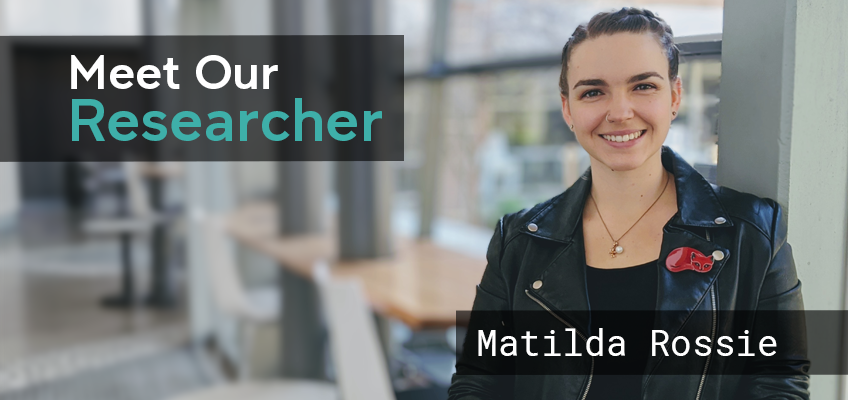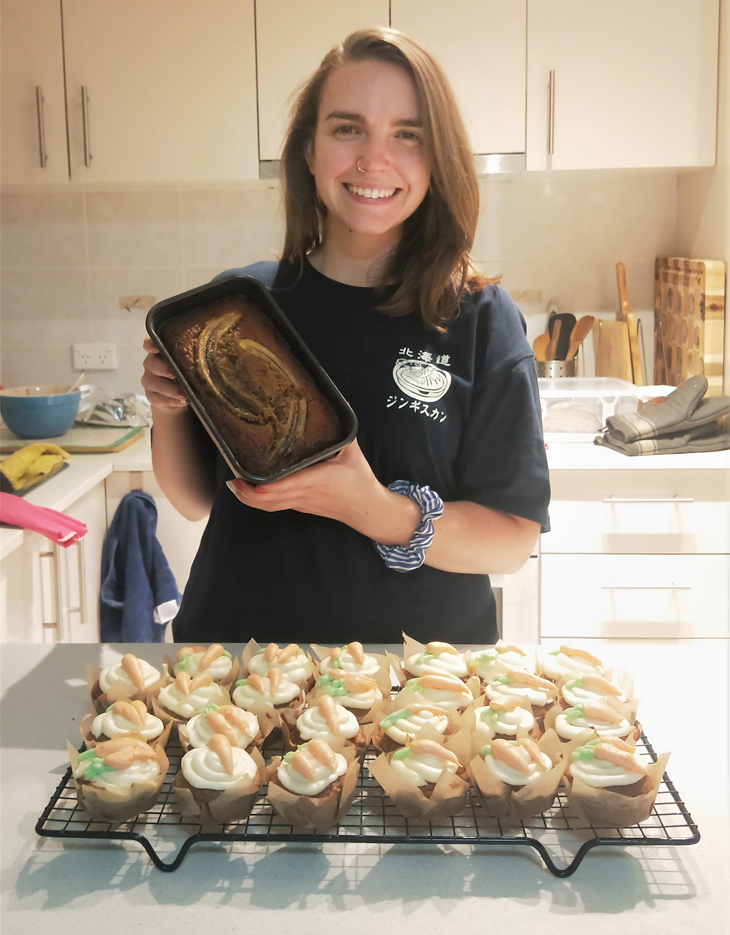10 Sep 2020

CHeBA’s CogSCAN study aims to evaluate the efficacy of using computerised testing to determine cognitive health. Research Assistant at CHeBA, Matilda Rossie, hopes that through the study we can develop more easily and accessible cognitive testing to improve the diagnostic experience of dementia patients.
How did you get into researching the ageing brain?
Doing a double degree for my undergraduate allowed me to study a range of fields like psychology, anatomy, sociology, and neuroscience. It was great experience but left me unsure about what I wanted to do or which field I wanted to go into once I had finished studying. I began work in a developmental clinic but found myself missing the research component of my degree. One of my colleagues sent me the advertisement for my current role at CHeBA, and I will always be so grateful to her, because I have found my passion in ageing research. It is a field that incorporates elements from all the disciplines I enjoyed at university, and I no longer feel the need to choose just one.

Did you experience a ‘defining moment’ which led you to this field?
When my Grandma was diagnosed with Alzheimer’s disease my Dad came across a free online course based around understanding and preventing dementia, which was offered by the Wicking Dementia Research and Education Centre at the University of Tasmania. After completing this course, I discovered there was a full scholarship offered to study their ‘Bachelor of Dementia Care’. I enrolled in the course and have really enjoyed the program and its focus on the bio-psycho-social model of dementia. As well as studying the neuroanatomical changes in dementia, we also learn about government policy, models of care and improving the lived experience for patients and carers.
Do you have any personal interests or activities which are protective behaviours against cognitive decline?
I put a lot of time into maintaining my social networks, which I know can be helpful for brain health as you age. Exercise is consistently being shown to be a great protector against ageing – both physically and mentally, so this year I have been working to improve my physical fitness and develop healthy exercising habits. Before COVID-19 I was going to the gym three times a week and doing Pilates classes; now I am taking advantage of YouTube workouts in the lounge room. Further, I consistently try to learn new things - whether it is a new skill such as Pilates, or just acquiring new information by attending such things as talks at the art gallery. During COVID-19, I have taken up cake decorating and started sewing again, which I find highly cognitively challenging given my lack of skills.
I like to be a jack of all trades as opposed to a master of one. My view is if you are constantly learning new things, it is more challenging and more rewarding.
What are you currently researching?
I work on the CogSCAN study which is looking at computerised cognitive tests and whether they are as reliable and useful as the original pen-and-paper ones that neuropsychologists have been using for decades. Computer tests have a lot of potential and they may overcome some issues with pen-and-paper testing. Potentially researchers would not need to physically be in the room with someone while they are assessed, which would have been extremely useful right now during the COVID-19 pandemic. It would also be beneficial for people with limited mobility or those residing in rural areas. I am looking specifically at older adults’ perceptions of and emotional responses to computer testing, how the experience of computer testing compares to the experience of traditional assessment, and which tests older adults prefer.
Why is your research important?
I think the CogSCAN study is vital as the use of computers in healthcare is increasing and to get the best outcomes for patients and clinicians, we have to ensure we are using the best tests.
My research is important because it considers the user experience and patient perspectives that contribute to determining the possible uses of the tests. After all, it does not matter if you have the best test available, if no one will take it.
What do you love about working for CHeBA?
The CHeBA team is very diverse and it is an environment that fosters enormous creativity and collaboration. I think in research environments it is sometimes possible to become so fixated on one method or topic or idea that it becomes harmful to the process of research. This does not happen in CHeBA because the team is so diverse that you have access to different perspectives and input which forces you to consider other possibilities and possibly adapt your research and broaden your findings. This is evident during our monthly seminars and journal club at which my colleagues present on their area of interest or what they are currently researching. This process starts conversations between all of us at CHeBA in different fields and exposes everyone to new ideas for research.
What is the ultimate hope you have for your research?
I hope that we can uncover the best ways to utilise computers and technology to aid healthy ageing. I also hope that we can ascertain how to incorporate the growing capabilities of technology to ultimately improve individual’s physical, mental and social well-being.
This interview was undertaken during the COVID-19 self-isolation period. During this time Matilda found doorstop deliveries of homemade meals and cakes to friends and family helped to foster community spirit and keep her feeling socially connected while physically isolated. She has also been staying hopeful and optimistic for the good times ahead by planning her wedding.
Donations are fundamental for critical research to continue following COVID-19.
If you would like to discuss supporting Matilda's work specifically, or would like information
on leaving a legacy via a Gift in your Will, please contact h.douglass@unsw.edu.au.

Matilda Rossie is a Research Assistant at CHeBA with the CogSCAN Study. The study aims to evaluate computerised neuropsychological assessments in comparison to traditional assessments conducted by a trained neuropsychologist. Specifically, Matilda is analysing participants’ emotional responses to computerised testing to understand their efficacy. She obtained a Bachelor of Arts and Bachelor of Science with Honours in Psychology from the University of Sydney.
